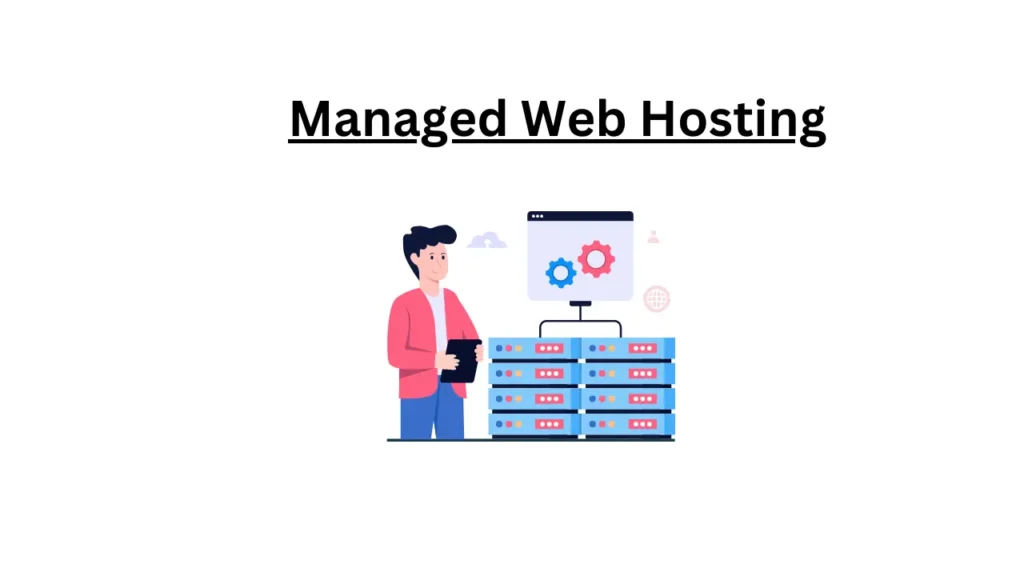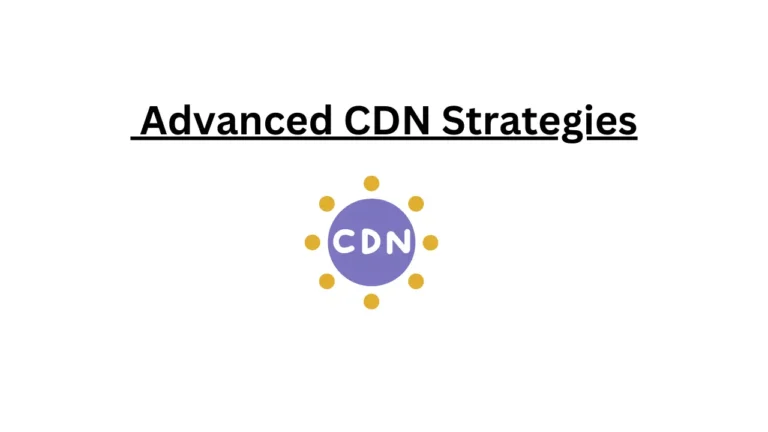Introduction to Managed Web Hosting
Picture this: You’re settling in for a long night of binge-watching your favorite show, snacks at the ready, only to be thwarted by a painfully slow website. Frustrating, isn’t it? This common scenario highlights the importance of a well-performing website, and that’s where managed web hosting comes into play. Managed web hosting services take the technical burdens off your shoulders, allowing you to focus on what you do best — running your website and engaging with your audience. In this article, we will explore how managed web hosting can significantly enhance your website’s performance, stability, and overall user experience.
The idea behind managed web hosting is simple yet powerful. It’s like having a dedicated team of experts managing all the nuts and bolts of your website’s backend. From regular updates and security patches to performance optimization and round-the-clock support, a managed web hosting service covers it all, ensuring your website runs smoothly without any hiccups. Managed web hosting not only boosts your site’s speed and reliability but also provides a secure environment that keeps your data protected — key factors that contribute to improved user satisfaction and higher search engine rankings.

Whether you’re running a small blog or managing a rapidly growing e-commerce platform, managed web hosting offers tailored solutions to meet your specific needs. By eliminating the hassle of technical maintenance, you can devote more time to creating content, growing your business, and interacting with your visitors. So sit back, relax, and read on to learn how managed web hosting can elevate your website’s performance to the next level.
What is Managed Web Hosting?
Managed web hosting refers to a type of web hosting service where the provider handles the day-to-day management, administration, and maintenance of the server for you. This contrasts sharply with unmanaged web hosting, where the responsibility of maintaining and troubleshooting the server falls squarely on your shoulders.
Imagine you’re running a bakery. In the unmanaged hosting scenario, you not only have to bake the bread but also fix the oven whenever it breaks down, clean the floors, and handle all customer complaints. Essentially, you’re juggling every single task, leaving you less time to focus on the core business of baking delicious bread. Now, switch to managed hosting, and it’s like hiring a team of experts who handle the oven maintenance, customer service, and even the cleaning. You can then focus solely on creating the best pastries and breads, knowing your business operations are in expert hands.
Core Benefits of Managed Web Hosting
One of the primary benefits of managed web hosting is improved performance. Since the hosting provider handles the technical aspects, they can optimize server settings, monitor performance, and provide faster loading times for your website. This results in a smooth user experience, potentially increasing visitor retention and conversion rates.
Enhanced security is another critical advantage. Managed hosting providers usually offer advanced security features, such as regular updates, vulnerability scans, DDoS protection, and SSL certificates, all aimed at safeguarding your website from potential threats. Essentially, these measures act as a security blanket, ensuring your site remains protected from malicious attacks.
Lastly, managed web hosting offers substantial time savings. Business owners can offload server management tasks, like software updates, backups, and troubleshooting, to the hosting provider. This allows you to concentrate on core business activities rather than being bogged down by technical issues.
Managed vs Unmanaged Hosting Comparison
| Aspect | Managed Hosting | Unmanaged Hosting |
|---|---|---|
| Performance | Optimized by provider | User has to manage |
| Security | Enhanced with regular updates and monitoring | User responsible for security |
| Time Investment | Minimal, handled by provider | Significant, managed by user |
| Technical Support | Expert support available | Limited or no support |
Choosing managed web hosting allows business owners to focus on what they do best while leaving the technical complexities to specialists, leading to better website performance, increased security, and substantial time savings.
How Managed Web Hosting Boosts Your Website Performance
Managed web hosting offers numerous advantages that significantly enhance your website’s performance. Here are the primary factors that contribute to this improvement:
1. Faster Load Times
One of the most immediate benefits of managed web hosting is the optimization of load times. Faster page loading can lead to a better user experience and can positively impact your SEO rankings. This service typically includes:
- Server-side caching: Managed hosting providers often implement server-side caching solutions to reduce the time it takes to load your website resources.
- Content Delivery Network (CDN): Many managed hosting plans come with integrated CDN services which distribute your content across multiple servers globally, ensuring faster delivery to users based on their geographical location.
- Resource allocation: Managed hosting optimizes the distribution and usage of server resources like CPU and memory, which directly impacts load times.
2. Better Uptime
Managed web hosting services can greatly improve your website’s uptime, ensuring it remains online and accessible to visitors. Enhanced uptime is achieved through:
- Regular Monitoring: Managed hosting includes round-the-clock monitoring to quickly identify and resolve any issues affecting site availability.
- Automatic Updates: Providers handle all necessary updates for server software and security patches, preventing downtime caused by outdated software.
- High Availability Architecture: Many managed host environments are designed with high availability in mind, offering failover solutions that keep your website running even during hardware failures.
3. Optimized Server Resources
Managed web hosting ensures that server resources are optimized for the best website performance, translating into smoother operation and an overall better user experience. This includes:
- Scalability: Managed hosting providers often offer scalable solutions that automatically adjust resource allocation based on your website’s traffic and needs.
- Custom Configurations: Providers can tailor server configurations to meet the specific requirements of your website, ensuring optimal performance.
- Load Balancing: Through load balancing, managed hosting distributes incoming traffic across multiple servers, preventing any single server from becoming overwhelmed and thereby improving reliability and speed.
To enhance audience engagement, consider integrating visual content such as charts illustrating the performance improvements achieved through managed web hosting. For example, displaying metrics related to load time reductions or consistent uptime percentages can provide compelling evidence of the benefits discussed.
Conclusion
In conclusion, managed web hosting offers numerous benefits that can significantly enhance your website’s performance. By choosing managed hosting, you offload the essential yet time-consuming tasks of server maintenance, updates, security, and backups to a team of professionals. This allows you to focus more on your core business activities and less on technical aspects, resulting in a more efficient workflow and a higher-quality user experience for your visitors.
Managed web hosting stands out for its robust security measures, optimal speed, and reliable support. It provides a scalable solution that can grow with your website. If you’re seeking to improve website uptime, gain quicker load times, and ensure robust protection against cyber threats, managed web hosting is a compelling option to consider.
To experience these advantages firsthand, we encourage you to explore various managed hosting providers. Many offer free trials, allowing you to test their services and determine the best fit for your website needs.
FAQs
What is managed web hosting?
Managed web hosting is a service where the hosting provider takes care of server management tasks such as maintenance, security updates, backups, and performance monitoring. This allows website owners to focus on their business rather than server management.
Is managed web hosting worth the cost?
Yes, managed web hosting is often worth the investment for businesses that require reliable performance and security but lack the technical expertise to manage their servers. The added benefits of 24/7 support, enhanced security, and improved performance can justify the cost.
Can I upgrade to managed web hosting later?
Absolutely. Most hosting providers allow you to upgrade from a standard or shared hosting plan to a managed hosting plan at any time. This flexibility ensures that as your website grows, your hosting solution can evolve to meet your needs.
Will managed web hosting improve my website’s speed?
Managed hosting providers optimize their servers for speed and performance. By leveraging advanced caching mechanisms, server-level optimizations, and Content Delivery Networks (CDNs), managed hosting can result in significantly faster load times for your website.
What level of support can I expect with managed web hosting?
Managed hosting typically includes 24/7 customer support from experienced technicians. Whether it’s troubleshooting issues, implementing updates, or optimizing performance, the support team is available to ensure your website runs smoothly.

